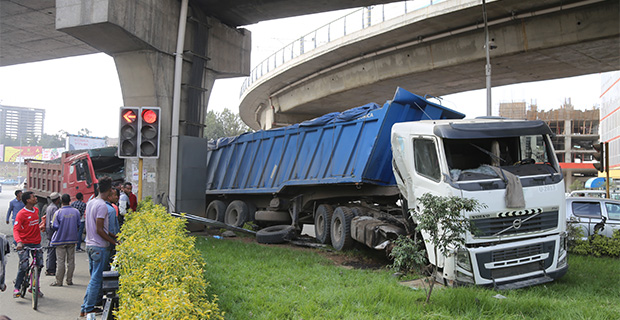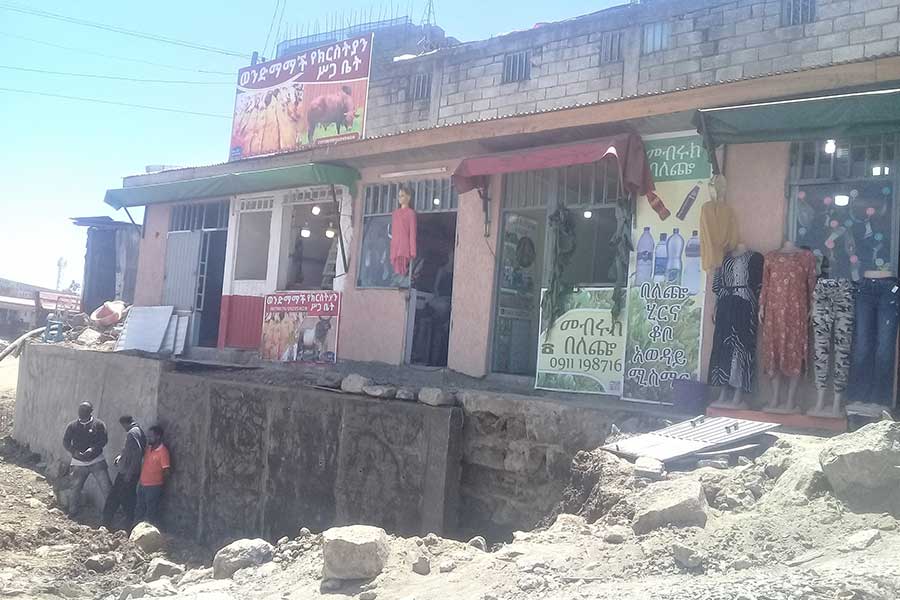
Viewpoints | Dec 02,2023
May 1 , 2020
By Eden Sahle
The criminal and civil case flow management directive, which will regulate the time federal courts take to close cases, is on track to be enforced by next year. Drafted by the Supreme Court, this is a measure that would help address shortcomings in the judicial system.
It is nonetheless only a small step in a part of the government that has been neglected for too long. The deeply rooted problems of the Ethiopian judiciary are immense. For generations, it has been a source of pain for those seeking justice instead of a place where people can find relief.
The sector not only suffers from a chronic shortage of human resources and interference by the executive, but also an inefficient organisational system that opens the door for the abuse of power.
Judges are handed hundreds of cases that take them years to clear, while the sector declines job opportunities to law graduates that could share the enormous burden. Due to the workload, judges become unable to handle cases in a timely manner and can commit serious legal errors.
Judges are over and over again reminded to follow up cases, because they tend to forget them, owing to the heaps of files they have to deal with on a daily basis. Often, clients are not granted enough time to explain their matter in a dispute as judges are always in a hurry to catch up with the next file at hand. Plaintiffs and defendants are neglected, denied justice, and many come to lose hard-earned savings without the possibility of redress. This not only frustrates clients and their lawyers but also destroys trust in the justice system.
The public has learned to view the law with suspicion, convinced that justice is bought but not granted by law. It is the popular view that justice is for those with cash and connections.
The shortcomings of the judicial system affects more than the victims. Judges are underpaid and lack proper security. It is a career they practice under constant intimidation, receiving threats from every dark corner.
The greatest challenge to the judiciary though has always been the executive. The latter’s interference in the matters of the judiciary, especially in high-profile cases, has been a stain on the reputation and the independence of the courts for decades.
The Constitution specifies the importance of the judiciary's independence. The supreme law of the land asserts that all levels of courts should be free from any interference, influence of any governmental body or government official.
Similarly, the United Nations Basic Principles on the Independence of the Judiciary and the Bangalore Principles of Judicial Conduct describe systems for the appointment of judges, security of their tenure, their financial security, promotion and accountability.
It is the regular complaint of those in practice that there has always been direct interference with the justice system to reverse judicial orders. Judges do not feel like they have the freedom to handle cases based on the law, especially when it comes to high-profile cases. In the absence of full separation of powers, it is hard to imagine that accountability will flourish.
Courts play an essential role in protecting the rule of law and human rights. It is an indispensable institution in the application of checks and balances. Courts should also exercise their mandate and ensure that the laws of the legislative and the conduct of the executive comply with the laws of Ethiopia.
The existence of independent and impartial courts is constitutional. Judges should be there to guarantee justice in full, considering only the facts of the case and the law. Strengthening the courts by making them autonomous is compulsory for accountability to prevail. Without these, the justice system will remain compromised.
It is vital for the country to establish and maintain this principle of judicial independence to protect and preserve a balance of power in the government. Judges should be allowed to fully exercise their vital roles. Otherwise, there is a serious risk that a culture of impunity will take root.
This is not something that can be achieved by passing any law. This is a matter of enforcement, and it would take a sense of responsibility, courage and determination on the part of the judiciary as well as the executive.
PUBLISHED ON
May 01,2020 [ VOL
21 , NO
1044]

Viewpoints | Dec 02,2023

Fortune News | Jun 18,2022

Radar | Sep 06,2020

Radar | Mar 23,2024

View From Arada | Nov 23,2019

Editorial | Sep 08,2024

Radar | Jul 03,2021

Commentaries | Feb 23,2019

Agenda | Mar 30,2024

Agenda | Apr 15,2023

My Opinion | 131548 Views | Aug 14,2021

My Opinion | 127903 Views | Aug 21,2021

My Opinion | 125879 Views | Sep 10,2021

My Opinion | 123510 Views | Aug 07,2021

Dec 22 , 2024 . By TIZITA SHEWAFERAW
Charged with transforming colossal state-owned enterprises into modern and competitiv...

Aug 18 , 2024 . By AKSAH ITALO
Although predictable Yonas Zerihun's job in the ride-hailing service is not immune to...

Jul 28 , 2024 . By TIZITA SHEWAFERAW
Unhabitual, perhaps too many, Samuel Gebreyohannes, 38, used to occasionally enjoy a couple of beers at breakfast. However, he recently swit...

Jul 13 , 2024 . By AKSAH ITALO
Investors who rely on tractors, trucks, and field vehicles for commuting, transporting commodities, and f...

Jun 28 , 2025
Meseret Damtie, the assertive auditor general, has never been shy about naming names...

Jun 21 , 2025
A well-worn adage says, “Budget is not destiny, but it is direction.” Examining t...

Jun 14 , 2025
Yet again, the Horn of Africa is bracing for trouble. A region already frayed by wars...

Jun 7 , 2025
Few promises shine brighter in Addis Abeba than the pledge of a roof for every family...

Jun 29 , 2025
Addis Abeba's first rains have coincided with a sweeping rise in private school tuition, prompting the city's education...

Jun 29 , 2025 . By BEZAWIT HULUAGER
Central Bank Governor Mamo Mihretu claimed a bold reconfiguration of monetary policy...

Jun 29 , 2025 . By BEZAWIT HULUAGER
The federal government is betting on a sweeping overhaul of the driver licensing regi...

Jun 29 , 2025 . By NAHOM AYELE
Gadaa Bank has listed 1.2 million shares on the Ethiopian Securities Exchange (ESX),...